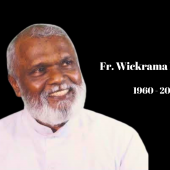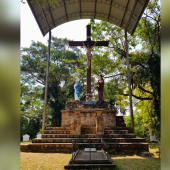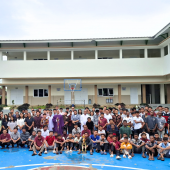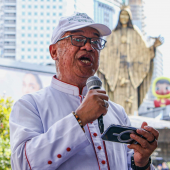Sri Lanka govt ‘aggressively attacking efforts’ to address rights abuses
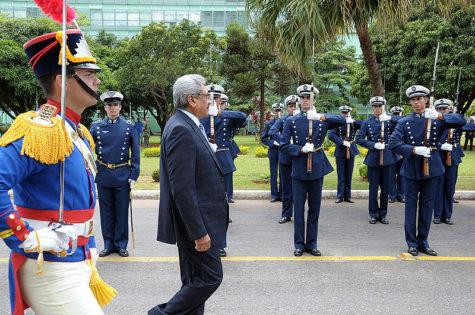
Sri Lanka’s government is aggressively attacking efforts to hold officials to account for past grave abuses, Human Rights Watch (HRW) has said in a new report.
The 93-page report, “Open Wounds and Mounting Dangers: Blocking Accountability for Grave Abuses in Sri Lanka,” examines efforts by the government of President Gotabaya Rajapaksa to thwart justice in seven prominent human rights cases.
The report released Feb. 1 describes the current context of government repression of activists, journalists, lawyers, and the families of victims, as well as threats against vulnerable minorities.
“The Sri Lankan government’s assault on justice increases the risk of human rights abuses today and, in the future,” said John Fisher, HRW Geneva director in a media statement.
The United Nations Human Rights Council, at its session beginning Feb. 22, should adopt a resolution upholding justice for serious international crimes in Sri Lanka and condemning ongoing abuses, HRW said.
Efforts to provide accountability significantly declined during 2020, HRW said. Senior police officers investigating killings and enforced disappearances committed during the Mahinda Rajapaksa administration have fled the country or been charged with apparently fabricated offenses. A commission appointed by the president has sought to interfere in criminal cases involving his allies and supporters.
Trials of military and intelligence officials accused of enforced disappearances have been delayed and disrupted. And the Rajapaksa-dominated parliament passed an amendment to the constitution that abolishes key checks on presidential power, undermining the independence of the judiciary and institutions such as the Human Rights Commission of Sri Lanka, HRW said.
Atrocities by government security forces and the separatist Liberation Tigers of Tamil Eelam (LTTE) during Sri Lanka’s 26-year civil war, which ended in 2009, have been well documented by the UN, the media, and domestic and international human rights groups, including HRW. The UN’s internal Petrie Report exposed the systemic failures of the UN to help protect civilians in the war’s final months.
Gotabaya Rajapaksa, the defense secretary in the government led by his brother the then President Mahinda Rajapaksa between 2005 and 2015, had direct responsibility for the conduct of government forces, which committed numerous war crimes, including indiscriminate attacks, summary executions, and rape, HRW said.
The rights group said that since being elected president in November 2019 he has appointed people implicated in war crimes and other serious violations to senior administration positions. He disavowed Sri Lanka’s obligations to promote truth, justice, and reparations under the Human Rights Council’s landmark 2015 resolution as an attack on the country’s “war heroes.” And he pardoned one of the very few soldiers ever convicted of abuses, HRW said.
During the government of former President Maithripala Sirisena, from 2015-2019, a number of police investigations into human rights violations made progress, revealing evidence of official responsibility for killings and enforced disappearances. However, important investigations have been derailed under Gotabaya Rajapaksa’s presidency, including into the 2009 murder of newspaper editor Lasantha Wickrematunge; the 2010 forced disappearance of journalist Prageeth Ekneligoda; and the enforced disappearance by naval intelligence officers of young men for ransom in 2008-2009.
There has been no progress in other important cases in which senior officials have been implicated, including the 2006 Trinco Five massacre in which five ethnic Tamil students were killed, and the massacre of 17 members of a French aid group Action Contre la Faim. - LiCAS.news
Radio Veritas Asia (RVA), a media platform of the Catholic Church, aims to share Christ. RVA started in 1969 as a continental Catholic radio station to serve Asian countries in their respective local language, thus earning the tag “the Voice of Asian Christianity.” Responding to the emerging context, RVA embraced media platforms to connect with the global Asian audience via its 21 language websites and various social media platforms.









